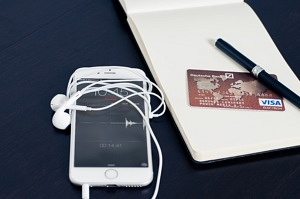You have hit rock bottom financially, now what?
Rock bottom financially is a position that some of us are familiar with. This is where things fail to work as planned, and you find yourself in mountains of debt, and not enough cash flow to both pay off the debts and your living expenses. The tendency for most people is to black it all out and hope it goes away.
However, it does not have to be this way. It is possible to recover from a financial ICU, and attain financial independence. Leo Babauta of Zen Habits wrote about his own experience and gave very practical tips that I thought to share, with additional commentary.
1. Stop the bleeding
Stop using your credit and debit cards immediately. Cut them up, or put them in the freezer in a ziploc bag filled with water, effectively freezing your cards. Also stop taking other loans, either from banks or finance companies or friends or family. Stop getting into more debt.
2. Talk to your creditors about the situation
Most people tend to avoid their creditors when their debt becomes unmanageable. This only makes things harder, because trying to hide from your creditors not only makes you an enemy, it creates additional stress, and could put you into serious legal trouble. Total up all your debts, calculate the minimum you can repay on each amount, then meet with each of your creditors (including the bank) and renegotiate the terms of your debt. Creditors will be amenable to this, especially when the alternative is for them to lose your money.
3. Evaluate your discretionary spending
 If you can’t find large amounts of money to save per paycheck, then you need to cut some things from your spending. This is where tracking your spending comes in handy, but even if you don’t, you know some of the extras you spend on — cigarettes, coffee, snacks, candy, desserts, eating out, magazines, shopping for clothes or gadgets or toys or shoes, books, going out, internet … these are just a few of the examples. I’m not saying you need to cut everything out, but if you can cut a few of them, or maybe just one at a time, that can add up. Then, take the money you didn’t spend on those discretionary items, and put that amount into savings every week or month. Increase this over time. The #52WeekChallenge has been a great tool for those who are just learning how to make saving a habit.
If you can’t find large amounts of money to save per paycheck, then you need to cut some things from your spending. This is where tracking your spending comes in handy, but even if you don’t, you know some of the extras you spend on — cigarettes, coffee, snacks, candy, desserts, eating out, magazines, shopping for clothes or gadgets or toys or shoes, books, going out, internet … these are just a few of the examples. I’m not saying you need to cut everything out, but if you can cut a few of them, or maybe just one at a time, that can add up. Then, take the money you didn’t spend on those discretionary items, and put that amount into savings every week or month. Increase this over time. The #52WeekChallenge has been a great tool for those who are just learning how to make saving a habit.
4. Set aside some money for emergencies!
Usually, the first instinct when you realise you have a bit of money to save is to start paying off debt. The problem with this approach is that as soon as an emergency occurs, you then need to get into debt to resolve it. Having a little nest egg will guard you against more debt.
Start a debt snowball to begin getting out of debt. If you haven’t read about debt snowballs, they’re simple. List out your debts and arrange them in order from smallest balance at the top to largest at the bottom. Then focus on the debt at the top, putting as much as you can into it. When that amount is paid off, celebrate! Then take the total amount you were paying and add that to the minimum payment of the next largest debt. Continue this process, with your extra amount snowballing as you go along, until you pay off all your debts. This could take several years, but it’s a very rewarding process, and very necessary.
Now that you’re out of the Intensive Care Unit (ICU).
Those are the first, emergency steps to take. While you’re doing those steps, start on these:
- Make a budget. I know, it’s a dreaded word for most of us. But it’s not that hard, and if you set it up right, it’s fairly simple. I recommend using a simple spreadsheet. List all your regular expenses (rent, car, utilities, internet, etc.) and their amounts, your debt repayments, and then your variable expenses (groceries, gas, eating out, etc.), and then your irregular expenses (things like car maintenance or medical that might not come up every month, but break them into estimated monthly expenses . Now match that up against your income. The expenses should be less.
- Automate your bills. As much as possible, try to get your bills to be paid through automatic deduction, especially the loan repayments. For those that can’t, use standing orders to make regular automatic payments. This way, all of your regular expenses in your budget are taken care of. Make sure that your savings is done the same way – automatic deduction.
- Save for your irregular expenses. Some call it a Freedom Account, but the key to ensuring that you have smooth finances and that you stick to your budget is to take into account all your irregular expenses, such as insurance, car maintenance or repairs, gifts (think Christmas!), medical and other such things. List them out, estimate your annual spending, and begin saving for them each month.Then, and here’s the key, when these expenses come up, use that money for those expenses! That way, you can use your regular budget for the stuff it’s meant for, not for these “unexpected” expenses.
- Use the envelope system for your variable expenses such as food and fuel/transport. T Let’s say you set aside three amounts in your budget each payday — one for transport, one for groceries, one for eating out. Withdraw those amounts on payday, and put them in three separate envelopes. That way, you can easily track how much you have left for each of these expenses, and when you run out of money, you know it immediately. You don’t overspend in these categories. If you regularly run out too fast, you may need to rethink your budget.

Credits:StockSnap
- Start thinking about your goals, and planning for them. When do you want to retire? How often do you want to travel? When do you want to buy that dream house? Do you want to save for your kids’ college education? Think about what you want in life, and start planning to save for them, especially once you’ve done all the above.
Once you’ve gotten beyond these steps, you should be past the paycheck-to-paycheck syndrome. Now there’s a whole world of personal finance options available to you, including investing your money for your goals. But getting past these first stages is important. Finally, avoid making similar mistakes in future.




1 Comment